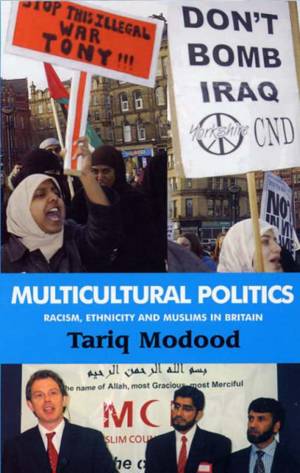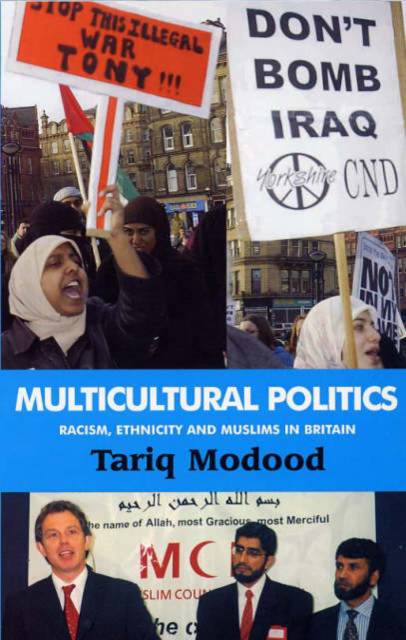
- Afhalen na 1 uur in een winkel met voorraad
- Gratis thuislevering in België vanaf € 30
- Ruim aanbod met 7 miljoen producten
- Afhalen na 1 uur in een winkel met voorraad
- Gratis thuislevering in België vanaf € 30
- Ruim aanbod met 7 miljoen producten
Zoeken
€ 50,45
+ 100 punten
Uitvoering
Omschrijving
Muslims have come to be perceived as the 'Other' that is most threatening to British society. This book argues that what begins as a narrative of racial exclusion and black-white division has been complicated by cultural racism, Islamophobia and an unexpected challenge to secular modernity. Moreover, the idea of 'race' as underclass has had to contend with the creation of middle class formations and high levels of participation in higher education among some non-white groups. These plural divisions are not intractable but require us to rethink simplistic and monistic ideas about racism, secularism, liberalism and what it means to be British.Tariq Modood has developed a unique and influential perspective out of his sense that the concerns of South Asians lie at the heart of 'race relations' in Britain. This book gathers together a number of his key sociological, political and theoretical interventions, together with a substantial new Introduction and Conclusion, allowing readers to engage with a distinctive analysis of race and religion.Key Features: * Combines a discussion of racism and Muslim politics in Britain* Offers an interdisciplinary combination of empirical sociology with political theory of multiculturalism* Challenges the secularist bias of liberals and social scientists
Specificaties
Betrokkenen
- Auteur(s):
- Uitgeverij:
Inhoud
- Aantal bladzijden:
- 272
- Taal:
- Engels
Eigenschappen
- Productcode (EAN):
- 9780748621729
- Verschijningsdatum:
- 15/03/2005
- Uitvoering:
- Paperback
- Formaat:
- Trade paperback (VS)
- Afmetingen:
- 138 mm x 216 mm
- Gewicht:
- 335 g

Alleen bij Standaard Boekhandel
+ 100 punten op je klantenkaart van Standaard Boekhandel
Beoordelingen
We publiceren alleen reviews die voldoen aan de voorwaarden voor reviews. Bekijk onze voorwaarden voor reviews.







